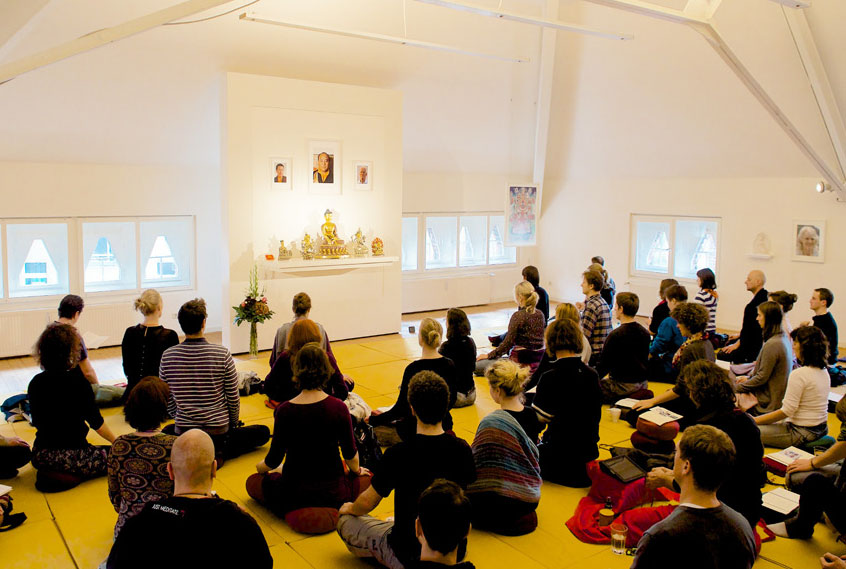What is Buddhism?

To bring us to this state, Buddhism points us to lasting values in this impermanent world, and gives us valuable information about how things really are. Through understanding the law of cause and effect, using practical tools like meditation to gain insight and develop compassion and wisdom, we — all of us — can tap into our potential to realize the ultimate goal of enlightenment.
Lama Ole Nydahl, Buddha and Love
Lasting values in an impermanent world
If we really pay attention, we can see that everything in the outside world is changing. Quickly like a candle flame or slowly like a mountain, even the most “solid” things change. They have no truly permanent essence.
Our inner world of thoughts and feelings is in the same state of constant change. The more we realize how everything is impermanent and dependent on many conditions, the healthier a perspective we can keep on our lives, our relationships, possessions, and values — focusing on what truly matters.
If everything comes and goes, is there anything that stays? According to Buddhism, the only thing that is always present is the awareness in which all these experiences and phenomena appear. This awareness is not only timeless but also inherently joyful.
To recognize this timeless awareness here and now means to become enlightened, and it is the ultimate goal of Buddhism.

Karma: What goes around, comes around
Buddhism inspires us to take responsibility for our own lives, without moralizing, by understanding cause and effect (karma). Just like gravity, the law of karma functions, everywhere and all the time.
Buddha explained in great detail how we shape our future through our thoughts, words and actions. What we do now accumulates good or bad impressions in our mind. Knowing this gives us great freedom and puts us back in control of our lives. Karma is not fate. We can choose not to do harmful actions, and thus avoid creating the causes of future suffering. To sow the the seeds for good results, we engage in positive actions.
Through Buddhist meditation, we can also remove the negative impressions already accumulated in our mind from former actions. Once we see how much suffering comes from simply not understanding cause and effect, we naturally develop compassion for others.

Compassion and wisdom
In Buddhism, compassion and wisdom go together. Practicing meditation regularly, we get more space in our mind, and distance from difficult thoughts and feelings. This allows us to see that everyone has the same basic problems as us, and we strengthen our compassionate wish to try to do something to help others.
When we act from compassion, focusing on others rather than ourselves, we get better feedback from the world. The disturbing emotions that we all have, like anger, pride, attachment, and jealousy, loosen their grip. Where there is space that we don’t instantly fill with our own concerns any more, wisdom has a chance to appear spontaneously.
Thus, wisdom and compassion grow and support each other on the path.
Enlightenment
The Buddha was special because he was the first person to attain full enlightenment in recorded history. But there is no essential difference between the Buddha and us. We all have a mind, and we can all attain liberation and enlightenment by working with our minds.
Our body, thoughts, and feelings are constantly changing. Buddhism views them as “empty” — empty of any lasting essence, meaning that they are no basis for a real, separate ego or self. The state of liberation comes when we not only understand this intellectually but experience it in a deep, lasting way. With no solid ego we stop taking things personally. We gain an enormous space for joyful development, without the need to react to every negative emotion that comes by.
Enlightenment is the ultimate goal in Buddhism. All positive qualities — especially joy, fearlessness, and compassion — are now fully perfected. Here, our awareness is all-encompassing, and not limited in any way. With no confusion or disturbance in our minds, we benefit others spontaneously and effortlessly.
If you’re interested in getting to know more about Buddhism, you can visit a Buddhist center near you, or continue reading about what it means to be a Buddhist.